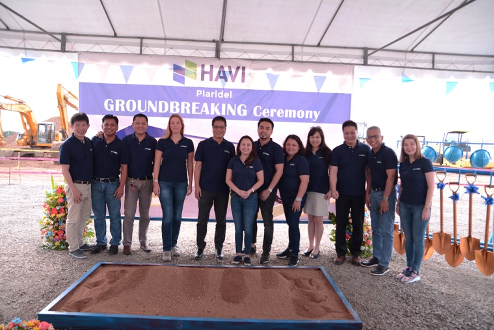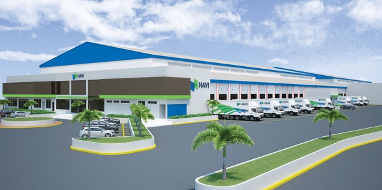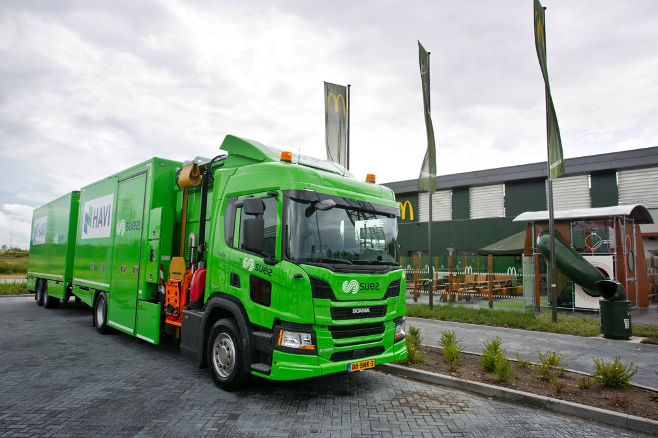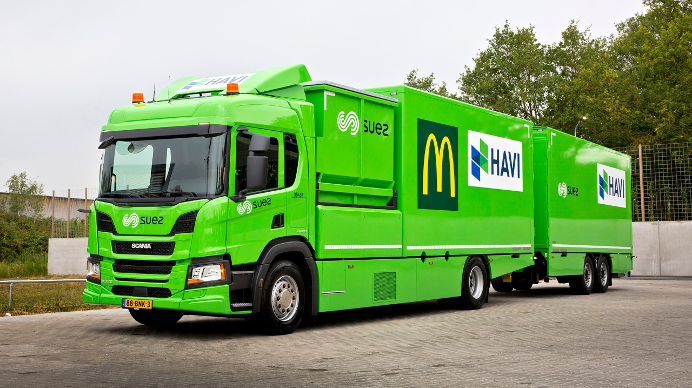HAVI Philippines Set To Support Customers’ Growth Ambitions As It Begins Construction Of New Warehouse
In the Philippines, HAVI is responding to the anticipated growth of its customers and the country’s budding quick service restaurant (QSR) sector as it begins construction of a new distribution center (DC) strategically located at Plaridel in Bulacan, to the north of Metro Manila.

In June, senior HAVI leaders joined their partners to celebrate the groundbreaking ceremony and start of work on the long-awaited Plaridel DC. The modern facility is set to open in late 2020 and will cover nearly 10,000m2, leaving the rest of its 16,627m2 site vacant to accommodate future construction. This is good news for customers as HAVI expands and streamlines its warehousing capabilities in the Philippines to support the expansion of all its current customers while leaving capacity to bring on board new customers.
Strategically, the new DC’s location in Plaridel is important for HAVI, its customers – and the Philippines. The area has been earmarked as a focal point for addressing growing urban challenges such as population growth as well as road, air and sea port congestion. Construction of the new Bulacan Airport is expected to start soon and North Luzon already has the road and port infrastructure in place to support local business expansion.

Speaking about this exciting investment in the market, Crispin Aquino, Managing Director, HAVI Philippines, explains: “Locating our latest DC in Plaridel will also help to improve our own transport efficiency on behalf of customers. Many existing HAVI suppliers are already based in North Luzon, which will smooth product supply to customer outlets. Cutting inter-warehouse transfers, meanwhile, will simplify route management, enabling our teams to deliver the HAVI promise even faster and more efficiently.”
HAVI, SUEZ, Scania Team Up In The Netherlands To Make McDonald’s Supply Chain Even More Sustainable
HAVI has teamed up with SUEZ and Scania in the Netherlands to make McDonald’s supply chain even more sustainable by launching a new generation of Scania hybrid trucks to provide recycling and waste services to the market.

This three-way partnership is the latest in a long line of initiatives that have won HAVI global recognition as a sustainability pioneer. We recently took our carbon-cutting drive to a new level by by joining the Science Based Targets initiative (SBTi). In line with the initiative’s aims, HAVI is now formally committed worldwide to reducing carbon emissions from its own vehicle fleet, subcontracted vehicles and buildings by 40% per metric ton of goods delivered by 2030 from the 2015 base-year. The ultimate aim: to help keep the rise in global temperature to well below 2°C.
Target Zero
Scania’s new Dutch hybrid truck significantly reduces fuel consumption on the road while cutting carbon emissions to zero by incorporating a hybrid powertrain that supports its standard engine with an electric motor. The vehicle is equipped with specialized equipment which – among many other functions – collects and processes used oils and fats while running on electricity when carrying out waste collection services at restaurants.
The immediate plan is to cut carbon emissions by also using electricity to power the hybrid truck over the final few kilometers between the local road and each McDonald’s restaurant. Ultimately, the aim is to eliminate all carbon emissions from the 11-13 McDonald’s restaurants along each waste collection route, significantly reducing the environmental impact of McDonald’s waste streams.
Proven Partnership
In 2017, HAVI and Scania committed to converting 70% of HAVI’s European delivery fleet from diesel to alternative fuels by 2021. In the Netherlands, they have already introduced liquefied natural gas (LNG) and hydrotreated vegetable oil (HVO) trucks to McDonald’s supply chain. Introducing the new Scania hybrid truck marks another step towards meeting their alternative fuels target.
Meanwhile, McDonald’s, HAVI and SUEZ have worked for many years to implement the most sustainable transport and waste processing solutions in the market, using their combined scale to test as well as deliver innovations. The Dutch authorities are set to introduce an inner city diesel ban by 2025. In response, the three partners are busy drawing up a step-by-step roadmap to consolidate their status as leaders in green logistics.

Introducing The P320 Scania Hybrid
The new Scania P320 truck is a hybrid electric vehicle (HEV) with a 320 HP, five-cylinder Euro 6 diesel engine that works in parallel with an electric motor which generates 177 HP (130 kW) and a torque of 1,050 Nm. The lithium-ion rechargeable battery pack is adjusted to 7.4 kWh to guarantee a long service life. The Euro 6 diesel engine also works seamlessly with HVO, a renewable fuel. As a result, these vehicles are potentially capable of reducing carbon emissions by up to 92% over their total lifespan.






